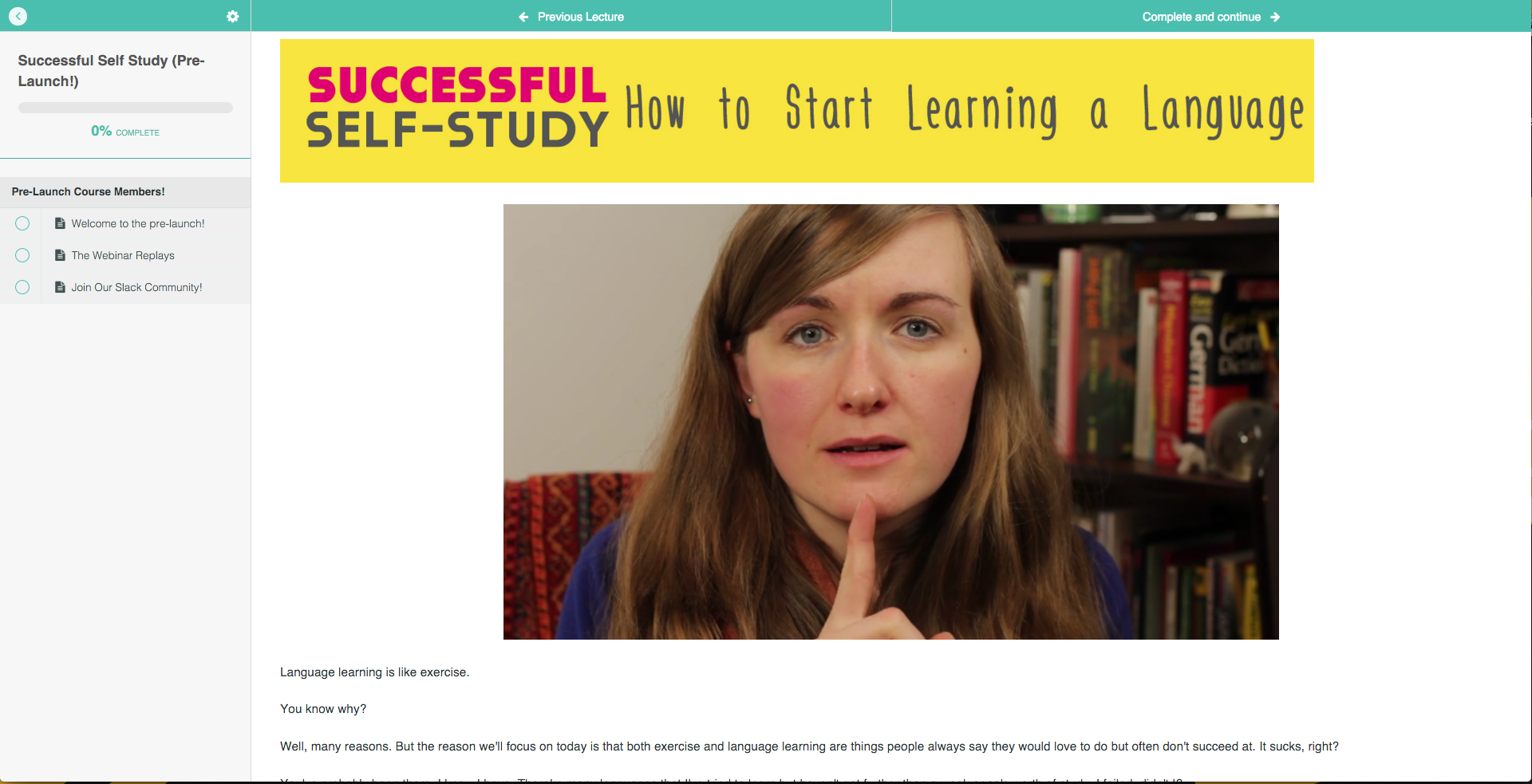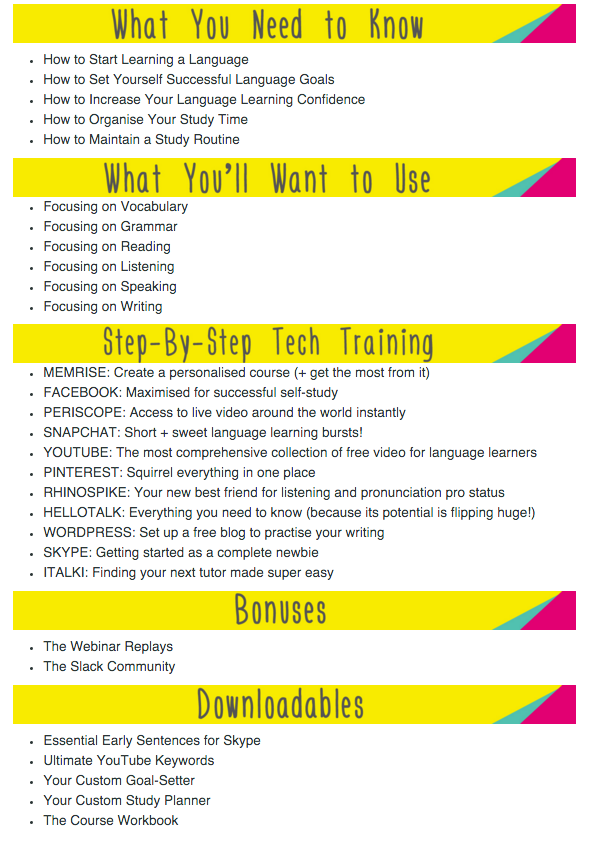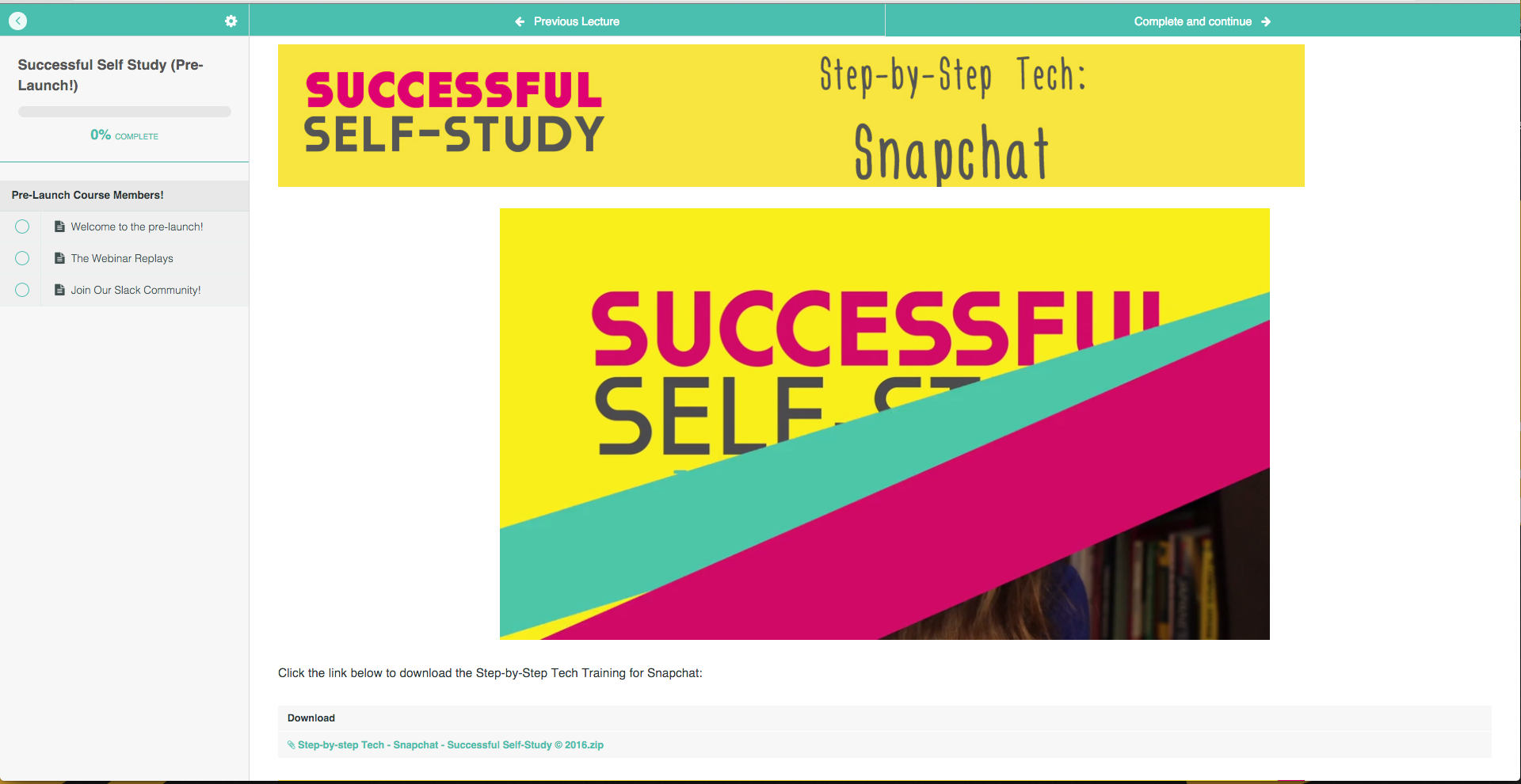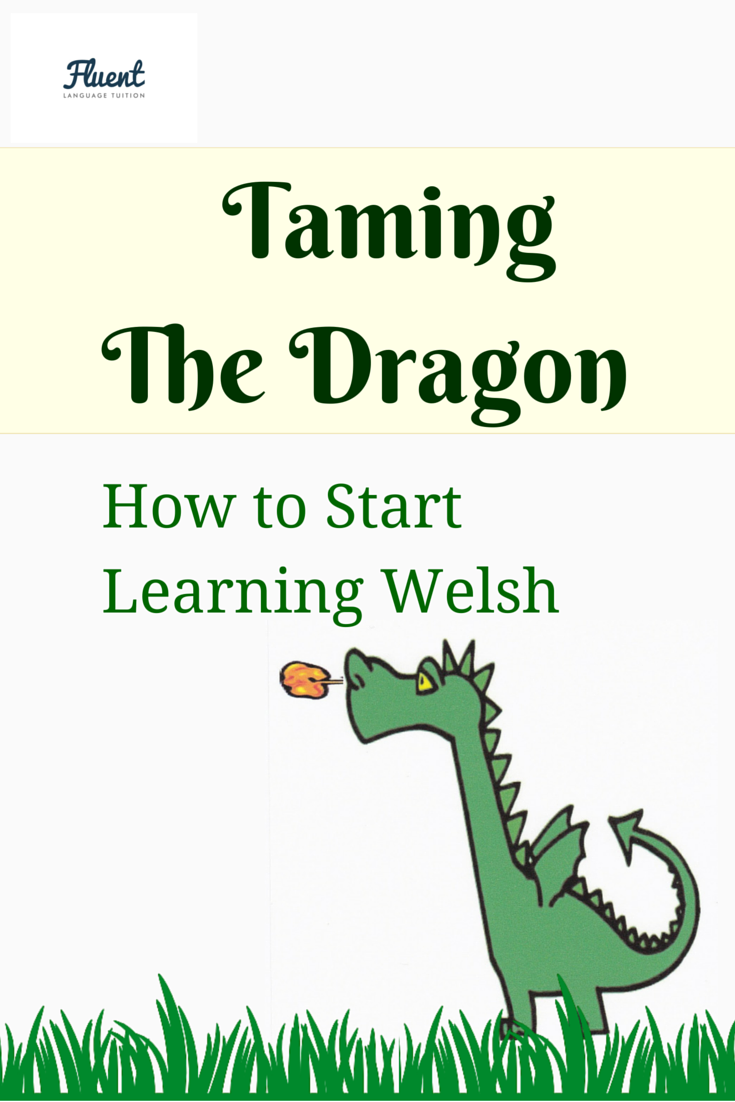Hi everyone, and strap yourselves in for today's review post all about a new course released by Lindsay from Lindsay does Languages. The course is called Successful Self Study, and it's all about every single step you need to follow for teaching yourself a language.
If you're a solo language learner hoping to meet an ambitious goal this year, read on to discover how Successful Self Study makes language learning easier.
Is This Instructor Worth Your Time?
You'll already know that Lindsay is my co-host on the Creative Language Learning Podcast. Lindsay is British, but she's one of the language-craziest people I know. She has studied over 8 foreign languages,.
Last year, she completed a self-directed university degree at the Open University. This means the end of 6 years doing a distance-learning course - the pinnacle of self study! And at the end of those 6 years, Lindsay has mastered a skill that so many of us struggle with: how to focus on your language studies and make real progress.
So before I go any further, let's go full disclosure: I have a lot of time for this person, and I believe she's totally trustworthy when it comes to language learning.
Lindsay has created the new course Successful Self Study, and allowed me a Sneak Preview so I can review it for you today.
The TL;DR Version: 7 Things You Need to Know
This course is perfect if you're trying to learn a language by yourself and you struggle with
- Having no time to study
- Getting distracted all the time
- Loneliness
- Lacking the commitment to your studies
- Feeling like you're stuck
- Over-researching and reading too many "guides to language mastery"
- It's great value when you add up 60 items, consisting of videos + guides + the most incredible workbook I've ever seen + a private online community + downloadable bonuses
- The thing is this: If you're learning a language by yourself, this is going to save you so much money and time in the long run that it would be ridiculous to mess around on Facebook's "Polyglot Procrastination" forums any longer
- I liked the course structure and found that the approach throughout is totally about the practice - this is designed to make you do stuff!
- It contains 3 amazing webinars, including my excellent goal-setting class with Lindsay that we held right at the start of the new year
- That workbook really is the BEST language learning book I've ever seen, and I wish I could go into a book shop and buy a printed version. Do yourself a favour and download it today
- Overall rating: 4.5/5
If you're ready to find out more and see the full curriculum, head over to Lindsay's site and watch the first video.
If you want to know more about what's inside Successful Self Study, let's have a look together.
The Look and Experience
This course is a combination of videos, workbooks, audio, and some extra downloads. It's hosted on the Teachable platform, which I can only applaud as this is what I chose as your best experience for the Fluent courses, too. The video selection is 50% Lindsay's friendly vlogging style and 50% screencast videos which demonstrate how different apps work.
The audio sections are going to be downloadable so you can listen and learn on the go (I haven't heard these yet, but they are announced for the release date.)
What's Inside The Course?
This course is divided into three main section, prefaced by a cute little introduction featuring Lindsay's own story as your instructor.
Section 1: Study Skills
The first section of the course is a short tour of the best practice in studying a foreign language by yourself.
The topic breaks down into aspects like motivation, productivity and how to build a language learning habit for the long haul. This section is what you think you already know, until you find yourself googling "how to speak a language tips" because you actually don't. Nice and useful to have it all in one place, and Lindsay definitely speaks from experience.
There's a definite focus on developing a routine, and it's just perfect for you if you're someone who needs to make every minute count. She's thought of every possible question: motivation, time management, confidence, productivity. It's like a secret library of self study shortcuts.
The course section can be kind of intense if you apply it all in one go, so remember that you have lifetime access and take it step by step. But you know...if we all wanted an easy hobby, we'd be Netflixing and not learning languages.
Section 2: Language Skills
Okay, this is a strange one for me but I bet you're going to like it lots. The second part of Successful Self Study is all about getting into learning a language (not just anything). It's structured perfectly featuring the 4 core skills (listening, reading, speaking and writing) together with vocabulary and grammar. Exactly how I would do it!
Lindsay is super practical She doesn't waste too much time telling you why each aspect matters, instead the approach here is this:
If we know we gotta do this thing, how can be make it the easiest thing ever?
As a result, it's motivating and very actionable. Within just a few minutes of watching these videos, I promise you're going to be excited to try out new tools and jump deeply into your new language.
She recommends the best possible tools for every aspect, so that you can come away with a roadmap for learning vocabulary, grammar, and every important language skill you need for fluency.
Section 2 is my favourite because it's the most "language-nerdy". I like background and research about what works for us from a scientific or social perspective. This isn't covered in the videos, but easily accessible with links to Lindsay's best articles around the web.
Section 3: Tech Training
The list of tech training resources is excellent - overall she's demonstrating 11 different websites, apps and tools. None of them costs any money at all, so this is like the ticket to the biggest free online playground you've ever seen. You're guaranteed to find something new to try - my favourites were Periscope and italki.
Some of these videos felt pretty basic and could be a little shorter. Things like joining Facebook groups seem obvious, and many of you have done this already. Having said that, remember that I'm pretty tech-savvy, I write a blog and it's my job to know this stuff.
I don't think as a learner you need to become hung up on the two videos about the tool you already knew. Use this section in line with your own priorities, and you'll have saved yourself a likely 300 hours of googling over the next year.
The key is that you don't just find it, but you do something with it. And the way Lindsay builds in this accountability is absolutely fantastic - let me tell you more!
Now THIS Is Going To Double Your Productivity
The absolute key to a course with so much content is to avoid becoming overwhelmed. Lindsay doesn't tell you when, how, or for how long you should work on this.
But this doesn't mean that you're left alone. Quite the contrary!
The course structure and delivery are solid, and Lindsay concludes every single lecture with an actionable exercise - you don't get to be passive. As a fellow online teacher, I rate this a very good thing.
The one thing you have GOT to do right after sitting down and clicking the purchase button (if you choose to) is download that amazing workbook.
It's an editable PDF. But that description does it no justice. Let me try and say it differently.
I Love This Self Study Workbook!!!!
This workbook is the single most awesome self study language learning resource I've ever seen. If you are one of the people who liked the 3-Week Planner in Fluency Made Achievable, you are going to faint with excitement at the sight of this thing.
I would really hate for super-keen learners to discover it halfway through the course. So do yourself a favour and listen to me here: You want to download this and have it by your side as the course companion, as it contains every planning worksheet, printout, notes section, EVERYTHING.
The one thing it was missing at the time I tested it was a table of contents to help you navigate through the book, but Lindsay has promised to add this in the next edition.
You can choose to have the workbook with you and make your notes on the computer, or to print it out. In fact, send the PDF to my local printer and have it bound. The workbook is just really, really good.
Bonuses
The bonus section contains starter credit for italki and HelloTalk plus four webinars with a bunch of experienced and knowledgeable guests (spot me and my super-cool hoodie) on topics like goal-setting and maintaining motivation.
Conclusion
Yep, we've got to a conclusion stage at the end of this super-detailed review.
Successful Self Study ratings:
- For structure and engagement (workbook!), it's 5/5.
- For video quality, it's 5/5.
- The tech training is a 3/5 in my book, because I would skip a lot of it.
For the results you can expect from taking this course, it's 5/5 because if you do the work, it is guaranteed to
- help you learn a language quickly
- teach you that discipline so you don't feel overwhelmed and busy
- boost your confidence so you actually start speaking within a few weeks
- save you money - with all the tools, a new langauge can be studied very cheaply.
Overall rating: 4.5/5 - highly recommended for anyone new to studying by themselves or struggling because life is busy. So that's all of us then.
How to Get Started
You can join Lindsay's Course Successful Self Study today.
It's easy peasy:
- Follow this link to get to the course page and select the yellow course
- Click "Enroll in Course"
2017 Update: Lindsay has recently updated this course and added a huge amount of bonus content, including training for grammar, better reading, speaking, listening, and lots more. It's priced at $120 which currently represents ENORMOUS value. Go forth and try it - well done, Lindsay!
Here's that sign-up link again: http://www.fluentlanguage.co.uk/selfstudycourse
So you're getting
- the world's most awesome workbook
- tech training
- 6 language study videos
- membership in a private online community of language learnears
- bonus webinars
- PDF guides to help you master language exchanges, YouTube & more
- practical self study tutorials
- my audiobook.
Compare that to $500 spent on Rosetta Stone, or at your local Goethe institute. WHOAH. Go for it.
Tell Me More!
Have you joined Successful Self Study? How did you find it? I'd love to hear what you thought in the comments below.
*This offer's good throughout 2017.











